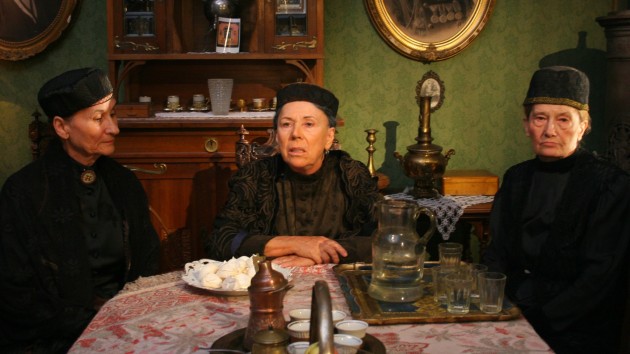Author Archives: Stephanie Baric
April 19, 2017 by Stephanie Baric
Adio Querida: TV Spotlights Sephardim in the Balkans

mhzchoice.com
A couple of years ago as my mother was browsing Serbian shows online, she stumbled across “The Scent of Rain in the Balkans,” a Serbian television series based on the bestselling novel of the same title by Gordana Kuic, centering on the tragic destiny of a poor Sephardic family from Sarajevo between 1914 and 1945. As the series opened with the song “Adio Querida,” a famous Ladino song titled “Goodbye My Beloved” in English, my Serbian Jewish mother forced me to watch the opening episode about, as she put it, “our beloved but forgotten Sephardic Jews.” I was hooked. “Scent of rain” is a Serbian metaphor for an impending disaster, an appropriate title for a Sephardic family attempting to survive wars and social upheaval in their community and the Balkans after World War I. Like most Serbian television series, which draw on the internationally acclaimed film industry in Yugoslavia following World War II, the adaptation of Kuic’s blockbuster novel is both beautiful and painful to watch.
Inspired by the life of Kuic’s mother, the series is narrated by the elderly Blanka as she tells her family’s story during one of the most turbulent periods in Europe’s history, marked by political conflict, social instability, and–during WW II–the almost complete annihilation of Yugoslav Jewry.
- No Comments
September 12, 2016 by Stephanie Baric
The Unregretted Decisions of Actor Mira Furlan
 Mira Furlan, an iconic Yugoslavian film and theater actor, came to the U.S. in 1992 as an exile, driven out of her native land by a toxic blend of anti-Semitism and misogyny.
Mira Furlan, an iconic Yugoslavian film and theater actor, came to the U.S. in 1992 as an exile, driven out of her native land by a toxic blend of anti-Semitism and misogyny.
I was working as a journalist in Zagreb at the time. When I read these attacks against Furlan, including one titled “The Hard Life of an Easy Woman,” I felt physically ill. I am a woman of Croatian and Jewish descent and this was the first time in my life that I’d encountered anti-Semitism and misogyny at such a personal level.
- 6 Comments
 Please wait...
Please wait...